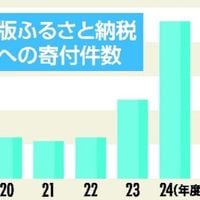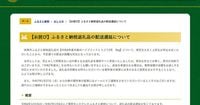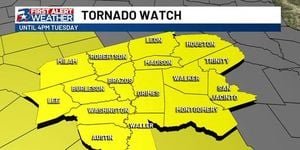In Japan, a surge in applications for Furusato Nozei, or hometown tax, with rice as a return gift has led to significant troubles, including inventory shortages and delays in delivery. This situation has arisen primarily due to the rising prices of rice, which has prompted many individuals to seek more affordable options. Local governments are now under pressure to improve their inventory management to cope with the increasing demand.
In Sakato City, located in Ibaraki Prefecture, the response has been overwhelming. From December 24, 2024, to January 6, 2025, the city received a staggering 15,440 applications for its locally produced rice, which is vacuum-packed for preservation. Unfortunately, due to inventory shortages, these applications could not be fulfilled. The number of applications surged dramatically, jumping from 1,146 in the three months between September and November to an astonishing 13,023 in December alone. This spike in applications was likely influenced by the fact that the hometown tax allows for a significant tax deduction, making the effective out-of-pocket cost for donors only 2,000 yen after deductions.
On January 7, 2025, the city suspended further applications, stating that they would send rice produced in 2025 to those who had applied, while offering refunds to those who wished to cancel their requests. A city official expressed regret over the situation, stating, "We sincerely apologize for the inconvenience and will strive to ensure that such issues do not occur again in the future." Similar challenges have been reported in Toyama Prefecture and Tarui Town in Gifu Prefecture, highlighting a broader trend across the nation.
In Yamaguchi Prefecture's Mine City, officials noted a sevenfold increase in applications in December compared to the same month the previous year. A representative from the city remarked, "We had anticipated a certain number of applications up until November, but December truly caught us off guard." This sentiment reflects the frustration felt by many local governments as they attempt to manage the unexpected surge in demand.
The average price of 5 kilograms of rice sold in supermarkets nationwide from April 14 to April 20, 2025, reached 4,220 yen, nearly double the price from the same period last year. A recent survey conducted by Sato Furusato, a leading Furusato Nozei portal site, revealed that over half of the approximately 11,000 respondents indicated that rising prices influenced their choice of return gifts. This trend suggests that consumers are increasingly turning to Furusato Nozei as a means to secure affordable rice amidst rising market prices.
According to a representative from Sato Furusato, the motivation to acquire goods through Furusato Nozei is likely to persist. "Local governments and businesses should confirm the number of items they can accept and continuously monitor their inventory status," the representative advised. This proactive approach could help mitigate future shortages and ensure that demand can be met more effectively.
In a related development, Tochigi Prefecture reported a record number of corporate Furusato Nozei donations in the fiscal year 2024. The prefecture received 46 donations amounting to approximately 1.661 billion yen, the highest figures since the program's inception in fiscal year 2016. Honda, based in Tokyo, made a substantial contribution of 1.5 billion yen, significantly boosting the overall total. This increase in corporate donations is attributed to national tax incentives encouraging companies to engage in community contributions.
A spokesperson from the prefecture emphasized the importance of this program for regional revitalization, stating, "This is one of the tools to invigorate local areas, and we want to actively engage with it." The increasing participation from businesses reflects a growing recognition of the potential benefits of contributing to local communities.
In another unique twist on Furusato Nozei, Toba City in Mie Prefecture has introduced name cards for its two rare sea otters, Mei and Kira, as return gifts. These name cards, made from acrylic for Mei and featuring holographic processing for Kira, have quickly gained popularity. The city produced 200 cards for each otter, and last year, five different types of sea otter name cards were created and included as bonuses for donors who contributed 30,000 yen or more towards accommodation and sightseeing packages.
Due to high demand, Toba City has temporarily suspended acceptance of these name cards on the Furusato Nozei site, Furusato Choice, as they have already sold out. The city is considering additional production to meet the continued interest. Mei, who turned 20 last year, was appointed as the "Toba City Furusato Support Ambassador," with the city’s mayor encouraging more people to support Toba City and visit for tourism.
As the only two sea otters being raised in Japan, Mei and Kira have become local celebrities, drawing attention to the Toba Aquarium. To manage the crowds, the aquarium has implemented a one-minute viewing limit in front of the otters’ tank since mid-March. This innovative approach to utilizing local attractions as part of the Furusato Nozei program demonstrates the diverse ways communities are engaging with this popular initiative.
Overall, the surge in applications for Furusato Nozei, particularly for rice return gifts, highlights the complex interplay between rising prices and consumer behavior. As local governments grapple with inventory management challenges, the increasing involvement of corporations and unique offerings like the sea otter name cards suggest that the program is evolving in response to both market demands and community engagement efforts.





